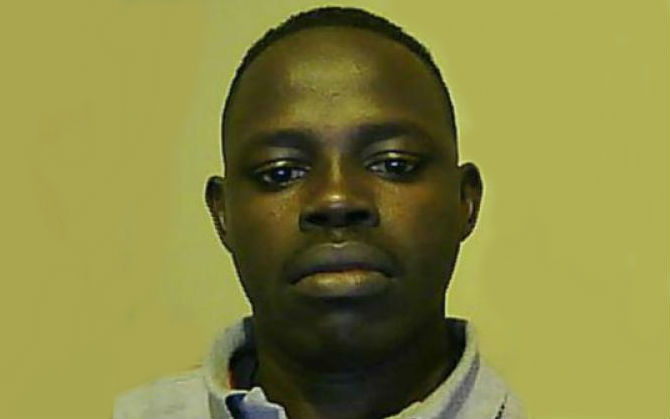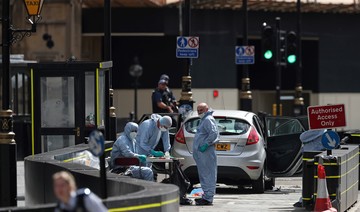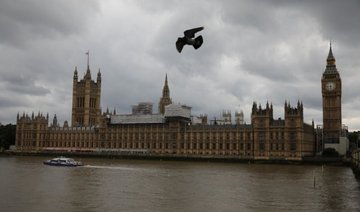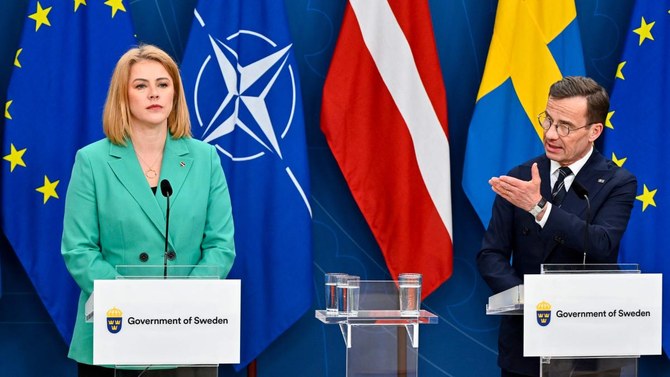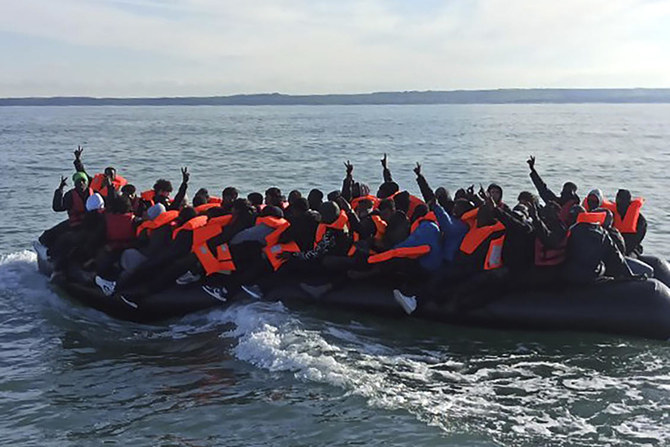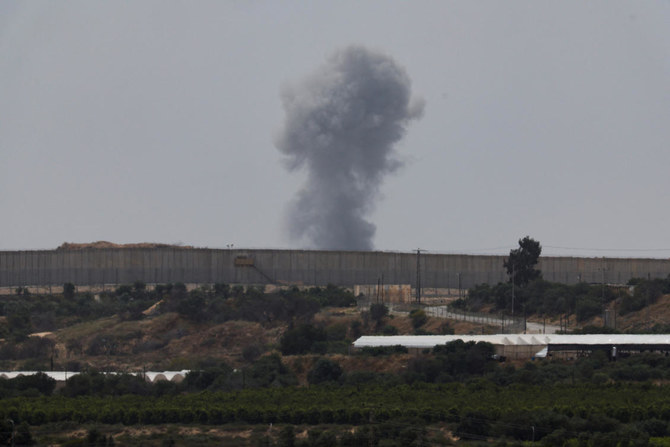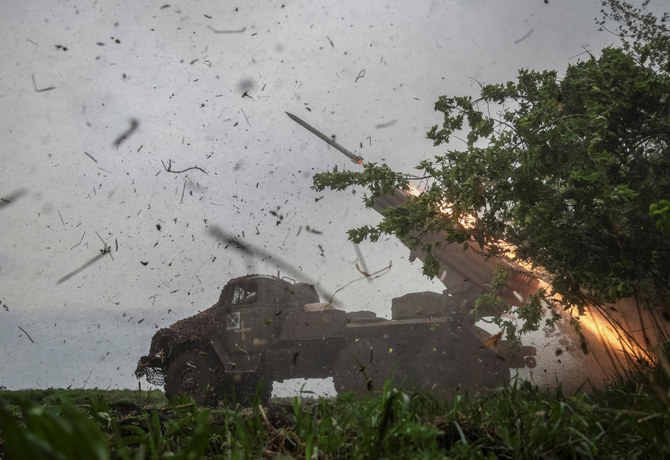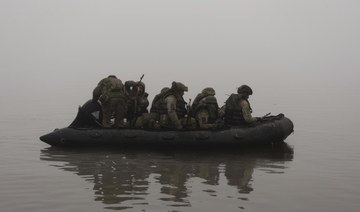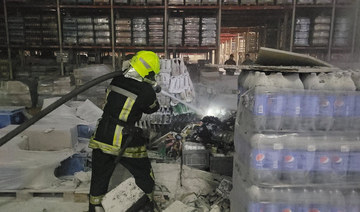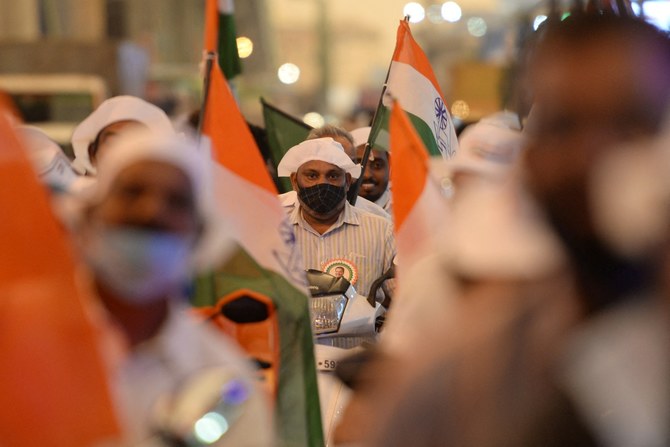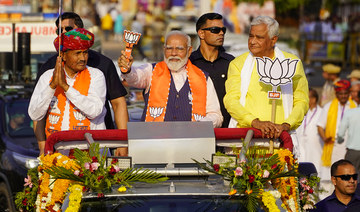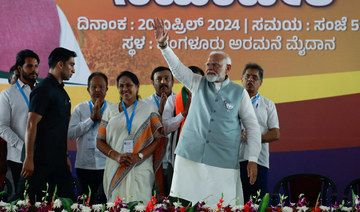LONDON: The British man accused of a terror attack after driving into a barrier protecting the Houses of Parliament was of Sudanese origin who came to the UK as a refugee.
Salih Khater, 29, will be investigated for attempted murder, British police said on Wednesday, along with the initial arrest for terrorism offences.
Khater drove over a pavement and into cyclists before crashing into the barrier on Tuesday morning. Two of the injured victims - a man and a woman - were taken to hospital but have been discharged. The third was treated at the scene.
Khater had recently dropped out of an accountancy course at Coventry University and lost a brother and his father.
His brother described him to the BBC as a “normal person” with no fanatical ideas, and no links to any religious group.
Abdullah Khater also said his family - originally from Darfur in Sudan - was in “a state of shock.”
The BBC reported that Khater came to the UK as a refugee in 2010 and was granted asylum. He successfully applied for UK citizenship in the past two years.
Khater had driven down to London from his home city of Birmingham on Monday night to get a Sudanese visa to visit his family. The Sudan embassy is near St James’s Park, less than a mile from the attack site.
In Birmingham, police searched two addresses on Tuesday and were at a third address on Wednesday. Another location in nearby Nottingham was also searched.
The attack has shaken the UK capital due to the similarities with another attack last year, when Khalid Masood drove his car into pedestrians on Westminster Bridge before crashing outside parliament.
Five people were killed including a police officer stabbed by the attacker after he crashed and ran inside parliament. Masood, who was shot dead by police, also lived in Birmingham.
The UK’s top counter-terrorism officer, Neil Basu, said the suspect was not believed to be known to intelligence agencies, but UK media reported he was known to police.
Prime Minister Theresa May’s office warned of the “severe” terror threat facing Britain, saying that by the end of June there were 676 live investigations into suspected terrorist plots.
Her spokesman said the current terrorist threat was “one of the starkest we have faced.”
24 hours on from a suspected terror attack in the heart of the capital, London Mayor @SadiqKhan says he believes Westminster's Parliament Square should be pedestrianised, stating: 'we've got to find new ways to keep ourselves safe'. pic.twitter.com/LhRmyjxeuP
— Good Morning Britain (@GMB) August 15, 2018
Amid the terror concerns, more details emerged on Wednesday about Khater, who works as a shop manager and had studied at Sudan University of Science and Technology, according to his Facebook page.
Abubakr Ibrahim, a childhood friend, told The Times newspaper: “He is not a terrorist. I have known him since childhood. He is a good man.”
He said Khater was the son of sorghum farmers, and had moved to Britain about five years ago in order to earn money to help his family.
A spokesman for Coventry University in central England confirmed Khater began studying accountancy there in September, but dropped out in May.
One of the places police have visited is an internet cafe in Birmingham, where Khater regularly visited, AFP reported.
The cafe owner said Khater lived in a flat above the parade of shops where it was located, but moved out a few months ago.
Local resident Ahmed Abdi, who is originally from Somalia, said he was “shocked” to see Khater's picture in the news.
“He was around here almost every day and I was here yesterday when the police turned up,” he said.

“He was very, very quiet and he never spoke to anybody.”
Police believe the car involved in the attack, a silver Ford Fiesta, drove around the Tottenham Court Road area - near Oxford Street - from around 1.25am before heading to the area around parliament around 6am.
The car crashed into the barrier at around 7.30am. The security barrier is one of many erected on key British sites after the September 11 attacks in the US in 2001, and reinforced in recent years.
Mayor of London Sadiq Khan said he backed the idea of banning vehicles from some areas around parliament.
“I've been an advocate for a while now of part-pedestrianising Parliament Square,” he told BBC radio.
But he warned any changes must not lose “the wonderful thing about our democracy which is people having access to parliamentarians, people being able to lobby Parliament, visitors being able to come and visit.”



